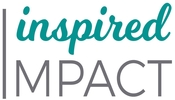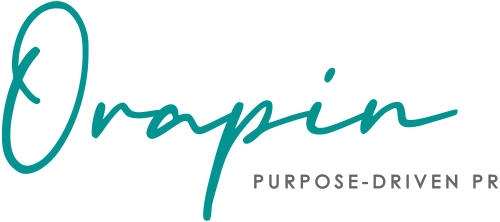 INSPIRED IMPACT™ features purpose-driven leaders and social entrepreneurs who are making a meaningful impact in their communities, industries, and around the world.
INSPIRED IMPACT™ features purpose-driven leaders and social entrepreneurs who are making a meaningful impact in their communities, industries, and around the world.
Brian Robertson is a partner at HolacracyOne. Follow them on Facebook, Twitter, and YouTube and learn more at HolacracyOne.com.
TELL US, WHO ARE YOU AND WHAT DO YOU DO?
I’m Brian Robertson. I’m the founder of Holacracy and of the company supporting Holacracy called HolacracyOne.
Holacracy is a new way to run a company without a management hierarchy. Most of the way we’re used to companies being run today is with the top-down command and control management hierarchy. We’ve been doing that for a long time. Holacracy is an alternative framework where companies don’t have managers or a management hierarchy, but they do have structure.
I think when people hear no managers, they often think I’m talking about companies with no structure, and that’s not it at all. Companies working with Holacracy actually have more structure, not less, than a management hierarchy – they are just structured differently. Instead of managers breaking down a structure and trying to clarify who does what, every team is involved in the governance of the team. So every team creates its own roles, its own policies, its own structure of who makes which decisions, who does what, and what is expected from each other. All of that actually gets clarified more than if you had a manager trying to do it. Most managers aren’t good at that, so they micromanage. Holacracy gives you a framework to add a process to each team where everybody is involved in doing the work of management. So it’s basically management without managers.
HOW DID YOU GET HERE?
I’m an entrepreneur. Sometimes I am accused of being an academic or a management theorist or something like that, and that isn’t my background. I build companies; I’m an entrepreneur. I started a software company back in 2001, and what drove me to start that company was being profoundly dissatisfied by how other companies I had worked for had been run. I had a feeling that there had to be a better way to do this. I didn’t know what that was, but I wanted to experiment. So I turned my software company into a laboratory, and over the next many years we experimented with any new way of running a company we could find or think about. I read every book and article I could and experimented again and again and over the years we pioneered new methods as well; we were just looking for a better way.
Ultimately, we wanted a more empowering system where people could drive change more effectively. My experience in a management hierarchy was that it was really hard to drive change, especially when you’re the lone person that sees something that needs to improve or could be better. There are big, painful meetings, you have to get buy-in and consensus, and discussion slows everything down. It’s horribly slow and inefficient and the system seemed designed to resist change. I wanted to create a company where it was really easy for people to drive positive change and take empowered action.
We experimented with my software company for years. I never actually expected what we did to spread beyond my company. I wasn’t looking to create a new management method. I was looking to find a better way to run my own company, which I did. We named it Holacracy after many years of implementing that process and then others began to get interested. We started seeing articles show up, I had friends who ran companies become interested and came and watched what we did. It just started spreading by word of mouth at first as well as by journalists writing about it.
I left my software company about 13 years ago to start HolacracyOne to focus on spreading the idea and practice of Holacracy and now there are thousands of companies all over the world implementing it.
WHAT DO YOU STAND FOR? WHY IS THIS WORK IMPORTANT TO YOU?
I believe empowered people can change the world. I believe that there there is a better way to run a company. When people let go of the standard ways we know of, we can find more powerful ways to control things that allow more people to take the reins and contribute. I think our environments today train people how to not be empowered. We train people how to follow orders. We train people to complain about what they don’t like, instead of going and fixing it themselves.
We have systems that create these parent-child dynamics where managers are expected to be parents. A lot of leadership training today is focused on how to get managers to be better parents. I want to get off of that playing field and change the game. I don’t want a parent-child dynamic. I want to be an adult with the people I work with. Where we can all take care of ourselves and change ourselves and work together without stepping on each other’s power. I think those kinds of playing fields are not only the ones that can better drive change in our companies, but I think when companies train people how to find and use real power together, that that can change the world around us as well.
WHAT IMPACT ARE YOU MAKING?
One of the most common things I hear is, “I would never go back.” I think that says a lot. I also hear that this framework is really impacting people’s personal development as well which inspires me. I had one woman come up to me after three or four months of doing Holacracy and said, “I finally get it. I understand what my therapist has been trying to get me to understand for the past two years.” It was about owning her autonomy and not being codependent with her partner, but also giving him space to really own what was his to own and lead his part of their relationship. She understood how to be a better partner for her husband because of how she worked in her company. Working together in a way that is deeply empowered, but also leaving room for others empowerment applies in professional relationships as well as personal ones.
There are also elements in Holacracy, such as simple meeting processes, that support life skills – enforcing taking turns, getting the attention, getting help to solve the tensions we feel. I learned early on when I have a partner who has some tension in our relationship, the worst thing I can do is start bringing in my tensions in the middle and say, “Oh yeah, well I’ve got this concern.” It works better when I give her all of my attention, all of my support, listen and say, “How can I help you solve your tension?” And when she’s done, I then say, “Okay, now can I take my turn solving my thing?” And that’s exactly what Holacracy’s meeting processes do. With Holocracy, people are trained to be better, more empowered actors in their lives. That has a huge impact on their life, even outside their companies.
Another area we get feedback on is productivity. One example is a Washington state government department that adopted Holacracy measured how many meeting minutes it takes to get a clear action or decision from someone else – before and after Holacracy. They found that after implementing Holacracy, there was a reduction of more than 90% fewer meeting minutes needed to get a clear action or decision from someone else. That means you can either get significantly more done in one meeting, which means you need a lot less meetings, or you’re able to do much more interesting work in each meeting. You’re not wasting time spinning wheels talking about everything forever.
Even more interesting was that they also tried to measure the time it took to make a change to a policy of the organization or somebody else’s job description and they actually found they couldn’t measure it because all the surveys before Holacracy was adopted noted that the time was ongoing, infinite – meaning it never actually happened.
In other words, it doesn’t matter how many meeting minutes we put in. Sometimes we talk about issues for years and we can’t change policies or other people’s jobs. It’s just not possible. But after Holacracy took hold, it took an average of about 20 minutes per change to a major policy or someone else’s job description. So now it’s not just an efficiency improvement, it’s actually a new capacity. It’s something people could not change before, and now they can actually change and evolve. To me, that’s even more interesting than the efficiency improvements.
WHAT (OR WHO) INSPIRES YOU TO DO THIS WORK?
I’ll share a story from where inspiration came during the very beginning of my turning towards Holacracy. I have a pilot’s license, and I had a situation when I was a student pilot and it was time for my first cross country solo flight.
I was flying hundreds of miles away without an instructor for the first time. On the journey, the low voltage light came on the instrument panel. I didn’t know much about the hardware, but my instinct was to check the other instruments. So one by one, I looked at every other instrument on the dashboard, and except for that low voltage light, no other instrument reported anything anomalous. I wasn’t losing altitude, the altimeter said everything was fine, the airspeed indicator said everything’s fine, the navigation said everything’s fine. Every other instrument indicated that there were no problems, everything’s fine, except for the low voltage light.
So I decided that it must not be that big of a problem. Only one instrument was reporting anything was wrong. So I ignored it and kept flying. It turned out that’s a horribly bad decision. I nearly crashed the airplane. I ended up completely lost in a storm with no radios, no lights, no electronics, no navigation, nearly out of fuel, completely lost and violating an international airport’s airspace.
It was really bad. I barely made it down. I did make it down, but barely. As I reflected on this, I realized this is what happens in our organizations. We, humans, become the instruments, the sensors for our organization’s light towards whatever purpose it’s serving in the world. We sense different things for different people. We tune into different information, and often it’s the low voltage lights that get ignored. It’s the one person or the small group or whatever, that senses what no one else does. The more I talk to people, I have yet to find a person who hasn’t had the experience of being the low voltage light in their organization. I think almost all of us have sensed something and found it difficult to drive change because we’re the lone voice or whatever.
What that inspired for me, from the very beginning of building my software company, was the question, “How can I build a company where anything sensed by anyone, anywhere in the business, could drive meaningful change?” That became the founding question. From there, I started looking at what gets in the way. Painful meetings get in the way, so we need better meeting processes. Holacracy adds those. Lack of clarity about what decisions you can make without a meeting, that gets in the way. Let’s clarify all the decisions you can make without a meeting, so you don’t have to call the meetings all the time. That lets people drive change. One by one we looked at what’s in the way of driving change and that was what started the experimentation that led ultimately to Holacracy.
WHAT’S YOUR VISION, YOUR BIG DREAM FOR THE IMPACT YOU WANT TO MAKE?
I want to evolve humanity’s relationship to power. We capture that as the purpose of my company. For me, that means changing first and foremost how people relate to their own power. Instead of calling meetings and deferring power to the group or looking to the boss to make the hard decisions, I want a world where people know their power and don’t hesitate to use it, but also where they know the boundaries of their power and understand and respect other people’s power. It’s one of the counterintuitive parts of Holacracy. It’s not just about clarifying where people’s power lies, it’s also about clarifying the boundaries.
If you don’t know the boundaries, you don’t know your freedom. If you don’t know the limits on your power, you don’t know what power you have without limits. So Holacracy’s about both; it’s about clarifying everyone’s power and the boundaries between them which allows people to take a stand: “I have power in this area. This is my role. This is my decision. I’m going to lead it.” But there is a boundary beyond that which it’s your decision and your role and where you leave room for someone else’s power, and so everyone can have more overall power together.
Holacracy is not just about distributing power from the managers to everyone else. It’s about elevating the power of everyone in the system and inviting everyone to be the CEO of their role and lead their piece of the system while knowing how to make room for others to lead theirs.
I want to see a world where people have a fundamentally better relationship to their own power and other’s power. I want to see a world where people stop looking to politicians and governments to solve things for them, but instead go out and build the world they want to live in.
WHAT CHALLENGES ARE YOU FACING?
For us, it’s such a different way to run a company so there’s a challenge in just getting the word out and helping people understand there are other ways to do things. People assume the conventional management hierarchy is the only way to do it, but it’s not. There are thousands of companies now doing it differently. So the biggest challenge we face is really just the messaging one. How do we get people to understand so that they can at least consider Holacracy? Maybe it’s not right for every company, and that’s fine, but it would be nice if people knew there are different options so they could seriously consider it.
WHAT’S ONE THING YOU WANT PEOPLE TO KNOW ABOUT THE WORK YOU’RE DOING?
There are better ways to organize power in your company and they work better than the conventional methods.
DO YOU HAVE A FAVORITE QUOTE OR WORDS OF INSPIRATION TO SHARE?
Here’s a quote I love, which also relates to my work with Holacracy and how it “changes the box:” “If everyone had to think outside the box, maybe it was the box that needed fixing.” – Malcolm Gladwell
HOW CAN OTHERS SUPPORT YOU OR YOUR CAUSE?
They can get curious. If they have anything to do with running a team or running a department or a company, get curious and just explore. Explore other ways to organize power. Even if Holacracy is not for you, I think just knowing about it and diving in and exploring it, spreads the idea that there are other ways and we can find and develop them as a community of leaders and companies.
Orapin Marketing + Public Relations supports purpose-driven leaders and brands with a rallying cry and a deep desire to make a difference. We share their positive stories and valuable expertise helping them to increase visibility, build trust, and become sought-after and celebrated. If you would like to be featured in INSPIRED IMPACT™, reach out to hello@orapinmarketing.com.

